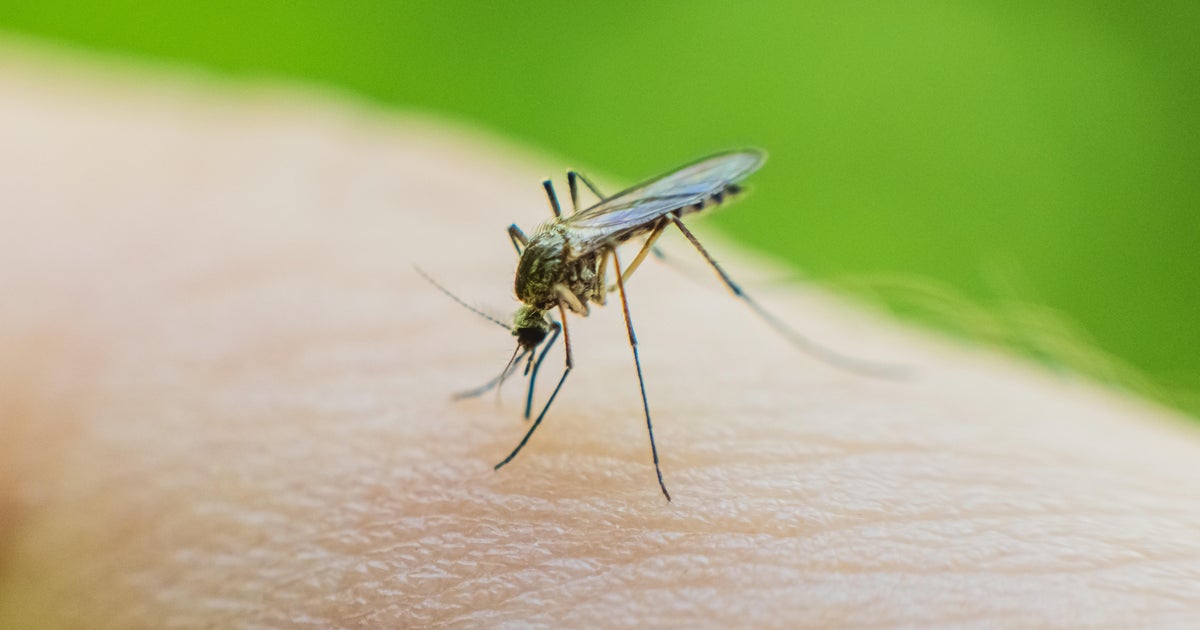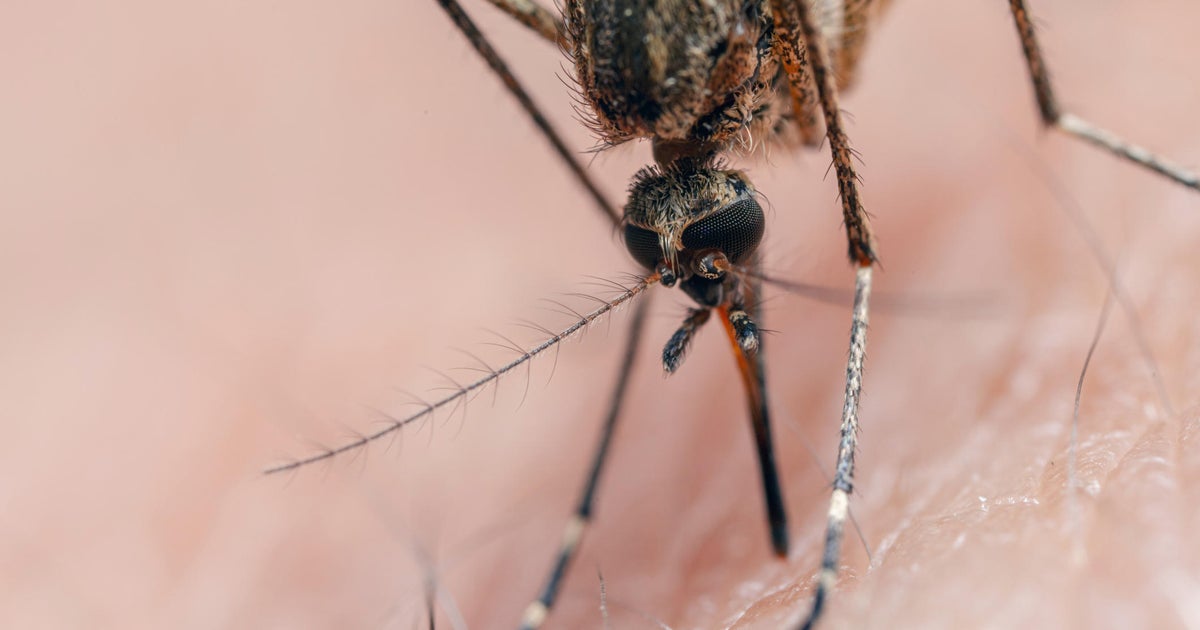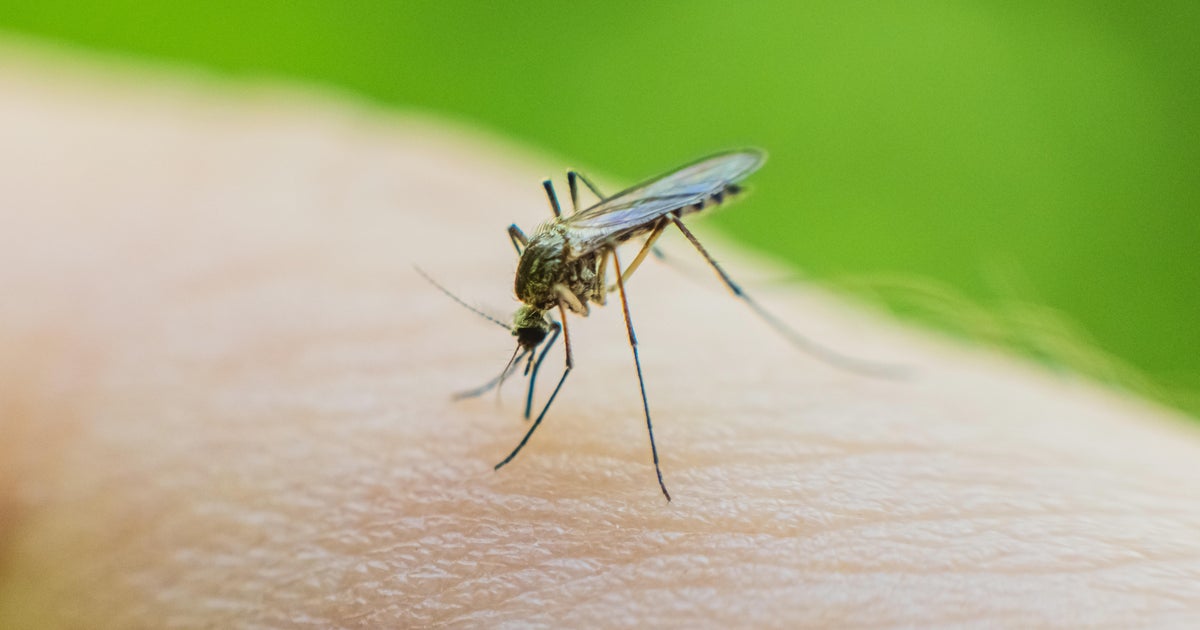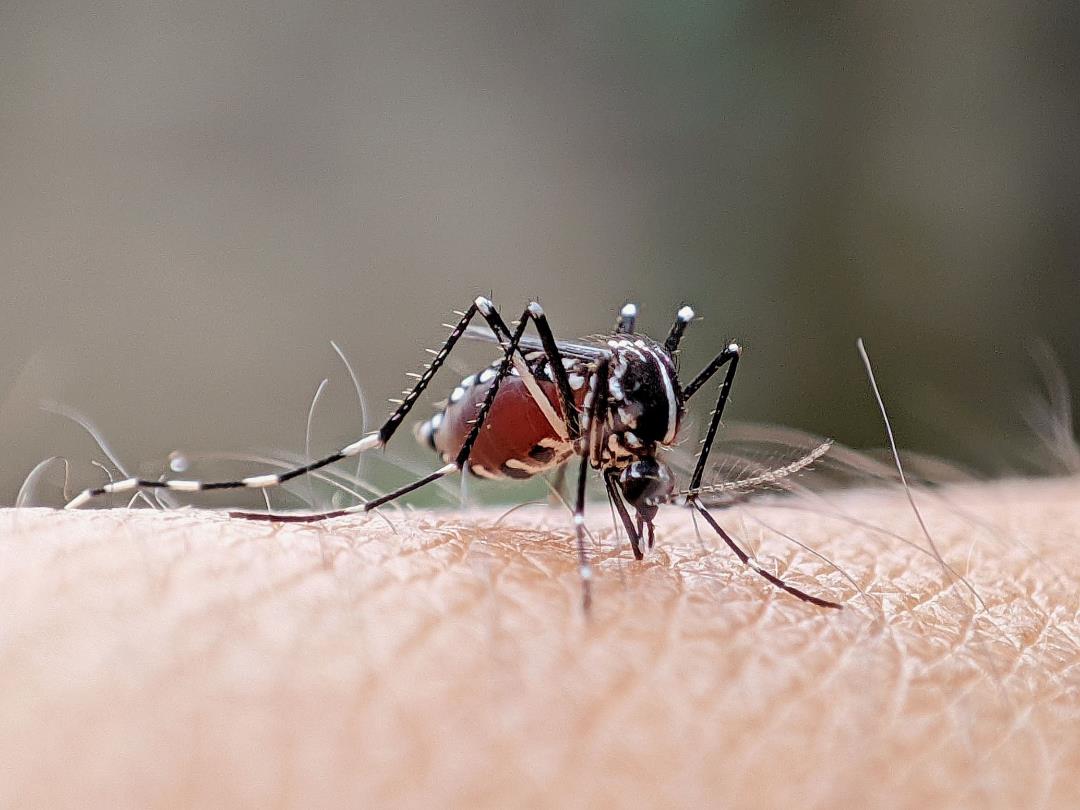Minnesota
How concerned should Minnesotans be about malaria’s spread?

ST. PAUL, Minn. – Not much was bugging a trio of disc golfers Tuesday at Acorn Park in Roseville. The drought has dried up the marshes where mosquitoes thrive along the wooded course. But they’ve also experienced the opposite.
“I’ve had times where I don’t even finish disc golfing,” one of them said about getting pestered by mosquitoes.
The bites are annoying, but the diseases they carry can be concerning. For the first time in 20 years, the CDC confirmed malaria has spread within the U.S. Four cases were in Florida and one in Texas.
Normally when someone in the U.S. has malaria, they caught it while traveling to a continent or country where the disease is present, such as parts of South America, Africa and Southeast Asia.
“In this case in Florida and Texas where there’s been some transmission, it’s a situation where someone has come in with the malaria infection, the parasite’s active within their system and then being fed upon by a local mosquito,” said Kirk Johnson, a vector ecologist with the Metro Mosquito Control District.
Malaria confirmed in Florida mosquitoes after several human cases
The mosquito then carries the malaria parasite, transferring it to anyone else it bites.
Should people be concerned about malaria spreading in the U.S.?
“Usually if there’s a mosquito-borne illness active in an area, there’s a pretty immediate mosquito control response, public health response to inform citizens,” Johnson said. “So, the likelihood of this continuing to spread is fairly low, even in warm Florida.”
Getting sick with malaria feels like the flu. Mild symptoms include headache, fever, and muscle aches.
Severe symptoms include changes in mental status, lung and kidney failure. It can be deadly if not treated.
According to the CDC, about 2,000 cases of malaria are diagnosed in the U.S. each year, with the vast majority being travelers or immigrants coming from a country where the disease is endemic.
The World Health Organization estimates that in 2020, there were 241 million cases of malaria worldwide. About 627,000 people died from it, most of them children in Africa.
When was the last time, if ever, there were malaria cases in Minnesota?
“There were cases documented up through the 1880s, but it was eradicated from the northern part of the U.S. around the turn of the century and in the rest of the U.S. between 1930 and 1950,” Johnson said.
There are mosquito species across the country still capable of carrying the disease, including in Minnesota. But Johnson doesn’t want people to worry.
“We do have introduced malaria cases in Minnesota nearly every year and we still haven’t seen local transmission. That’s how rare it would be in Minnesota,” he said.
Science-backed tricks to keep mosquitoes out of your yard
However, if you are traveling to Texas, Florida, or a country where malaria is present, the key is protecting yourself.
“Any common sense mosquito prevention efforts will go a long way towards reducing malaria risk,” Johnson said.
Insect repellent that includes DEET, wearing pants and long sleeves, and closing windows to keep bugs out can help limit mosquito bites.
It takes between 10 days and four weeks for symptoms to start after getting malaria. The five people who caught disease within the U.S. have received treatment and are improving.

Minnesota
Goalie Nicole Hensley stars as league-leading Minnesota Frost top New York Sirens in shootout | CBC Sports
Nicole Hensley made back-to-back saves in the shootout and the Minnesota Frost earned their fourth straight victory with a 4-3 win over the New York Sirens on Sunday in Newark, N.J.
It was the fourth time in seven all-time meetings that a game between the teams was decided in OT and the second this season. New York won the season opener in St. Paul, Minn.
Kendall Coyne Schofield scored two first-period goals to stake the Frost to the early lead and Taylor Heise beat Kayle Osborne, who relieved starter Abigail Levy in the New York net to start the second period, two minutes in to make it a 3-0 lead.
WATCH l Heise scores shootout winner:
Taylor Heise’s fourth round shootout goal turned out to be the difference as the Minnesota Frost defeated New York Sirens 4-3 Sunday in New Jersey.
But Osborne did not allow another goal in regulation and wasn’t seriously challenged in overtime while the Sirens staged a comeback. Brooke Hobson and Elizabeth Giguere each scored in the second period and Alex Carpenter pounced on a loose puck and lifted a shot over Hensley’s shoulder from deep in the face-off circle to tie the game midway through the third period.
Hensley was brilliant in overtime, turning away four close-in, open shots by the Sirens (2-1-1-1), two of them on breakaway chances.
Minnesota (4-0-1-0) got goals from Denisa Křížová, Grace Zumwinkle and Heise in the shootout. Noora Tulus and Carpenter each converted in the shootout for New York, but Hensley came up with a save on Sarah Fillier before stopping the final two shooters for the Sirens.
Hensley finished with 33 saves on 36 shots to earn the win. Osborne made 18 saves on 19 shots over her 45 minutes in goal for New York. Carpenter’s two-goal effort lifted her past Coyne Schofield and into the league lead with four goals in her first five games and she now has a league-leading seven points.
WATCH l Sirens’ Fillier, Carpenter test their off-ice chemistry:
Host Anastasia Bucsis puts newest teammates and linemates to the test to determine if their chemistry on the ice, translates off it.
Minnesota
Unique northern Minnesota border airport closing after 70 years

A northern Minnesota airport with an unusual claim to fame is closing after 70 years of operation.
The Piney-Pinecreek Border Airport near Roseau is the only airport with a paved runway crossing the U.S.-Canada border.
The border airport opened in 1953 to expedite customs processing for air travelers and was regularly used by hunters and anglers flying to Canada.
The Piney Pinecreek airport has the only paved runway crossing the US Canada border. Google Earth
Initially, the airport had a grass runway that ended at the border, but in 1978 a runway expansion added a paved runway that extended into Canada.
MPR News helps you turn down the noise and build shared understanding. Turn up your support for this public resource and keep trusted journalism accessible to all.
Customs agents would meet travelers on either side of the border.
But declining usage and significant impending repair costs led to the decision to close the one of a kind operation, said Ryan Gaug, director of the Minnesota Department of Transportation aeronautics office.
“We know that the pavement condition has declined significantly over the years and will need a reconstruct most likely in the next one to three years,” said Gaug.
Short-term costs to bring the facility up to safety standards is estimated at $3.8 million.
Piney-Pinecreek is the only airport owned by MnDOT, and it is operated in collaboration with the Rural Municipality of Piney, Manitoba.
A Canadian official said the local government could not raise the money to pay its share of the planned improvement costs and Piney officials ended the joint operations agreement.
Gaug said an estimated 200 airplanes a year use the facility, far lower than traffic at similar sized facilities.
There are six airports on the U.S.-Canada border, but Piney-Pinecreek is the only one with a paved runway.
“It’s always been the No. 1 fun fact that I’ve shared with friends, family, coworkers, colleagues here at MnDOT,” said Gaug.
“It’s a tough decision to close an airport ever, but the evidence was all there that now was the time,” he said.
MnDOT officials said the runway at Piney Pinecreek border airport needs a costly reconstruction.
Courtesy MnDOT

There are no local airplanes based at the airport.
“It’s very sad for the community to lose its airport,” said Marlin Elton, a local resident who served on the airport commission and helped maintain the facility for 30 years.
Elton said the closure hasn’t raised concerns in the community because “if you don’t fly, it won’t affect you. The ones who will be affected are the pilots who use it.”
Gaug said MnDOT reached out to pilots and aviation groups to gauge support for keeping the airport open but found “there just isn’t a strong user base for this airport and that also led to not a strong local support fighting to keep this airport.”
The final day of operations for the Piney-Pinecreek airport is Dec. 26.
Minnesota
NEXT Weather: 10 p.m. report for Minnesota from Dec. 21, 2024

Watch CBS News
Be the first to know
Get browser notifications for breaking news, live events, and exclusive reporting.
-

 Politics1 week ago
Politics1 week agoCanadian premier threatens to cut off energy imports to US if Trump imposes tariff on country
-
/cdn.vox-cdn.com/uploads/chorus_asset/file/25789444/1258459915.jpg)
/cdn.vox-cdn.com/uploads/chorus_asset/file/25789444/1258459915.jpg) Technology1 week ago
Technology1 week agoOpenAI cofounder Ilya Sutskever says the way AI is built is about to change
-

 Politics1 week ago
Politics1 week agoU.S. Supreme Court will decide if oil industry may sue to block California's zero-emissions goal
-
/cdn.vox-cdn.com/uploads/chorus_asset/file/25546252/STK169_Mark_Zuckerburg_CVIRGINIA_D.jpg)
/cdn.vox-cdn.com/uploads/chorus_asset/file/25546252/STK169_Mark_Zuckerburg_CVIRGINIA_D.jpg) Technology1 week ago
Technology1 week agoMeta asks the US government to block OpenAI’s switch to a for-profit
-

 Business1 week ago
Business1 week agoFreddie Freeman's World Series walk-off grand slam baseball sells at auction for $1.56 million
-
/cdn.vox-cdn.com/uploads/chorus_asset/file/23951353/STK043_VRG_Illo_N_Barclay_3_Meta.jpg)
/cdn.vox-cdn.com/uploads/chorus_asset/file/23951353/STK043_VRG_Illo_N_Barclay_3_Meta.jpg) Technology1 week ago
Technology1 week agoMeta’s Instagram boss: who posted something matters more in the AI age
-
News1 week ago
East’s wintry mix could make travel dicey. And yes, that was a tornado in Calif.
-
/cdn.vox-cdn.com/uploads/chorus_asset/file/24924653/236780_Google_AntiTrust_Trial_Custom_Art_CVirginia__0003_1.png)
/cdn.vox-cdn.com/uploads/chorus_asset/file/24924653/236780_Google_AntiTrust_Trial_Custom_Art_CVirginia__0003_1.png) Technology2 days ago
Technology2 days agoGoogle’s counteroffer to the government trying to break it up is unbundling Android apps






















